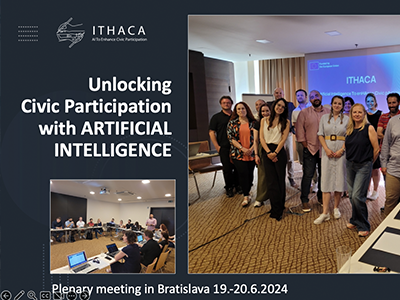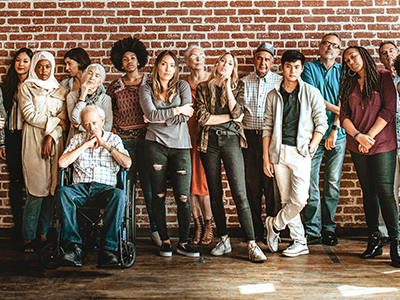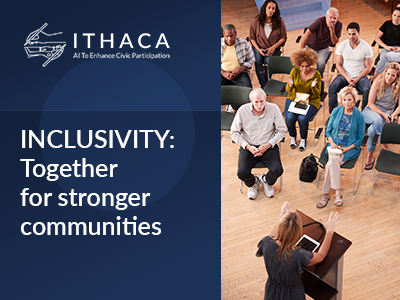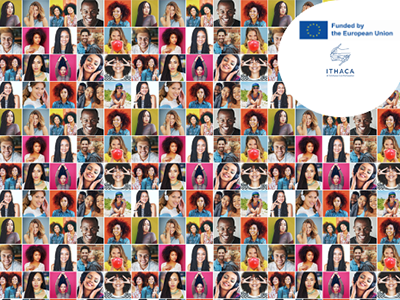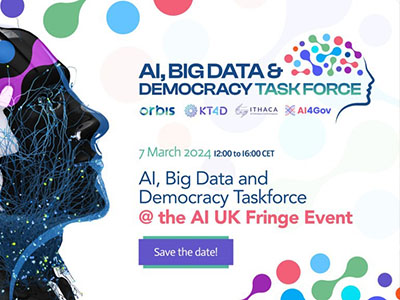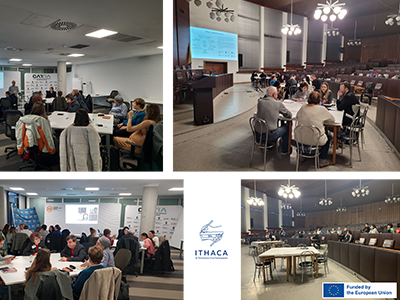PEDAL Consulting, s.r.o. hosted the third plenary meeting of the ITHACA project on 19. – 20. June2024, in Bratislava. This crucial networking opportunity served as a platform for knowledge sharing on the project’s progress, its achievements, and potential workflow challenges.
EXPLORING STAKEHOLDER REQUIREMENTS FOR A PARTICIPATORY PLATFORM
In the endeavour to create a participatory online platform that caters to the diverse needs of stakeholders, the ITHACA project embarked on a comprehensive exploration of requirements from all involved parties. This inclusive approach, involving citizens, municipality workers, managers, technical experts, data analysts, and ethical advocates, underscores the commitment to develop a platform that truly serves the interests of its users as we have mentioned in previous articles.
UNVEILING STAKEHOLDER NEEDS: A STRUCTURED EXPLORATION
In the pursuit of crafting an inclusive and user-centric Artificial Intelligence (AI) platform for all the citizens, ITHACA project partners have embarked on a journey to meticulously understand the diverse requirements of all our stakeholders. How are we about to align the design of the platform with their specific needs?
DECODING ALGORITHMIC RISK: NAVIGATING THE LANDSCAPE OF DIGITAL CIVIC ENGAGEMENT
In the realm of digital civic engagement, algorithmic systems wield significant influence. However, behind their functionality lies a complex landscape of ethical considerations and societal impacts. Algorithmic Impact Assessments (AIAs) emerge as crucial tools for promoting accountability and ethical practices. Despite challenges such as biases and transparency, embracing responsible AI design presents opportunities to shape a future where technology serves civic needs ethically. Join the ITHACA initiative in unravelling these complexities and charting a path toward algorithmic accountability.
ENHANCING CIVIC ENGAGEMENT THROUGH INCLUSIVE WORKSHOP METHODOLOGIES: A COMPREHENSIVE APPROACH
In today’s digital age, understanding what people need from technology is crucial. Especially in places with lots of different people involved. It’s not always easy for everyone to say what they need, though. Primarily, if they haven’t used similar tools before. This can make it hard to figure out how to make things better. How did we cope with this challenge when collecting input for our planned design of the ITHACA platform?
ITHACA CITIZEN JURIES: WHERE HERE EVERY VOICE IS HEARD AND VALUED
In today’s digital age, the integration of artificial intelligence (AI) into civic engagement platforms offers unprecedented opportunities to democratize decision-making processes. However, this transformational potential can only be realized through the meaningful inclusion of diverse voices, particularly those from marginalized or vulnerable communities. Recognizing this imperative, the ITHACA project embarks on a journey to bridge the gap between AI innovation and inclusive civic participation. This article delves into the outcomes of various activities conducted within Work Package 2 (WP2) of the project, shedding light on the intersection of algorithmic risk assessment and human-centered design in the selection process of AI Citizen Juries.
EXPLORING THE INTERSECTION OF ARTIFICIAL INTELLIGENCE, BIG DATA, AND DEMOCRACY
In today’s digitally driven world, Artificial Intelligence (AI) and Big Data play pivotal roles in shaping democratic governance and communication. However, they also pose challenges to democratic values, potentially creating an environment that undermines citizen engagement. Addressing these ethical and socio-technical considerations to ensure responsible AI development and deployment is crucial.
NAVIGATING THE INTERSECTION OF ARTIFICIAL INTELLIGENCE, BIG DATA, AND DEMOCRACY: THE ROLE OF RESPONSIBLE AI
Artificial Intelligence (AI) and Big Data technologies have become integral parts of our society, influencing various aspects of democratic governance and communication. However, alongside their potential benefits, they also pose challenges to democratic values and principles. Addressing these challenges requires a comprehensive approach known as responsible AI.
NAVIGATING GDPR CHALLENGES IN THE ERA OF ARTIFICIAL INTELLIGENCE: A DEEP DIVE
The integration of Artificial Intelligence (AI) into platforms like ITHACA has ushered in a new era of efficiency and innovation, but not without its complexities, especially in the realm of the General Data Protection Regulation (GDPR). As AI’s intricate data processing and decision-making capabilities unfold, a nuanced approach to GDPR compliance becomes imperative.
ITHACA: ADVANCING AI’S POSITIVE IMPACT ON DEMOCRATIC ENGAGEMENT
The ITHACA initiative is dedicated to leveraging artificial intelligence (AI) for the betterment of democratic institutions. Our focal point: the creation of an online discussion platform that encapsulates human and social perspectives. This platform, set to be piloted in Romania and Slovakia, aims to amplify democratic processes through inclusivity.

